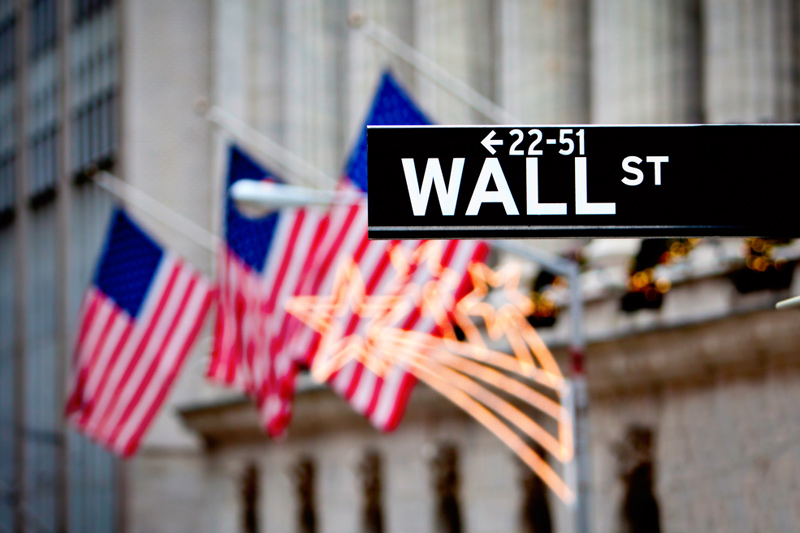Investing.com - U.S. stock futures were modestly higher after the open on Wednesday, as shares in Citigroup and MetLife came under heavy pressure after the Federal Reserve said late Tuesday the two financial institutions failed the central bank’s stress-test.
During early U.S. trade, the Dow Jones Industrial Average eased up 0.15%, the S&P 500 index added 0.1%, while the Nasdaq Composite index rose 0.3%.
U.S. equities are attempting to extend a rally into a sixth day, after stocks soared on Tuesday. The Nasdaq composite closed above 3,000 for the first time since December 2000. The Dow settled at the highest level since December 2007, while the S&P closed at its highest level since June 5, 2008.
Shares in lenders were active as investors assessed the results of the Fed’s stress test of the largest U.S. lenders.
According to the results, JP Morgan Chase and 14 other financial institutions could maintain adequate capital levels even in a recession scenario, while continuing to pay dividends and buy back stock. Four, including Citigroup, failed.
The Fed had planned to release the results on Thursday afternoon. But it moved up the announcement after JP Morgan declared its dividend increase. The bank said it had the Fed's blessing to raise the dividend.
Citigroup shares dropped 3.4% after the Fed said the bank would have to resubmit their capital plans to the central bank.
The three other lenders that failed were, Ally Financial, MetLife and SunTrust Banks. MetLife shares tumbled 4.7%, but SunTrust rose 3.3%.
On the upside, Zions Bancorp soared 7.1%, Regions Financial jumped 5.6%, while Bank of America added 2.2%.
Meanwhile, Apple shares climbed 2.6% to hit USD580 per share, as the company reiterated the new iPad would be available on Friday. Investment bank Morgan Stanley raised its bull case price target on the stock to USD960 earlier.
Memory chip maker Micron also helped lift the Nasdaq in early trade, rising 3.65% after Bernstein Research raised its rating on the memory chip maker to ‘outperform’ from ‘market perform’.
On the downside, shares in Cheniere Energy dropped 5.4% after announcing it will sell 17 million shares of common stock in an underwritten public offering.
Across the Atlantic, European stock markets were broadly higher, with indices extending gains after euro zone finance ministers formally approved a second bailout for Greece.
The EURO STOXX 50 rallied 1.05%, France’s CAC 40 jumped 0.8%, Germany's DAX surged 1.25%, while Britain's FTSE 100 added 0.45%.
During the Asian trading session, Hong Kong's Hang Seng Index dipped 0.15%, while Japan’s Nikkei 225 Index soared 1.55% to settle at above 10,000 for the first time since July.
In a report released earlier, the U.S. Bureau of Economic Analysis said the country’s current account deficit widened to a seasonally adjusted USD124.1 billion in the fourth quarter of last year.
Separate data showed that U.S. import prices rose by a less-than-expected 0.4% in February.
During early U.S. trade, the Dow Jones Industrial Average eased up 0.15%, the S&P 500 index added 0.1%, while the Nasdaq Composite index rose 0.3%.
U.S. equities are attempting to extend a rally into a sixth day, after stocks soared on Tuesday. The Nasdaq composite closed above 3,000 for the first time since December 2000. The Dow settled at the highest level since December 2007, while the S&P closed at its highest level since June 5, 2008.
Shares in lenders were active as investors assessed the results of the Fed’s stress test of the largest U.S. lenders.
According to the results, JP Morgan Chase and 14 other financial institutions could maintain adequate capital levels even in a recession scenario, while continuing to pay dividends and buy back stock. Four, including Citigroup, failed.
The Fed had planned to release the results on Thursday afternoon. But it moved up the announcement after JP Morgan declared its dividend increase. The bank said it had the Fed's blessing to raise the dividend.
Citigroup shares dropped 3.4% after the Fed said the bank would have to resubmit their capital plans to the central bank.
The three other lenders that failed were, Ally Financial, MetLife and SunTrust Banks. MetLife shares tumbled 4.7%, but SunTrust rose 3.3%.
On the upside, Zions Bancorp soared 7.1%, Regions Financial jumped 5.6%, while Bank of America added 2.2%.
Meanwhile, Apple shares climbed 2.6% to hit USD580 per share, as the company reiterated the new iPad would be available on Friday. Investment bank Morgan Stanley raised its bull case price target on the stock to USD960 earlier.
Memory chip maker Micron also helped lift the Nasdaq in early trade, rising 3.65% after Bernstein Research raised its rating on the memory chip maker to ‘outperform’ from ‘market perform’.
On the downside, shares in Cheniere Energy dropped 5.4% after announcing it will sell 17 million shares of common stock in an underwritten public offering.
Across the Atlantic, European stock markets were broadly higher, with indices extending gains after euro zone finance ministers formally approved a second bailout for Greece.
The EURO STOXX 50 rallied 1.05%, France’s CAC 40 jumped 0.8%, Germany's DAX surged 1.25%, while Britain's FTSE 100 added 0.45%.
During the Asian trading session, Hong Kong's Hang Seng Index dipped 0.15%, while Japan’s Nikkei 225 Index soared 1.55% to settle at above 10,000 for the first time since July.
In a report released earlier, the U.S. Bureau of Economic Analysis said the country’s current account deficit widened to a seasonally adjusted USD124.1 billion in the fourth quarter of last year.
Separate data showed that U.S. import prices rose by a less-than-expected 0.4% in February.
